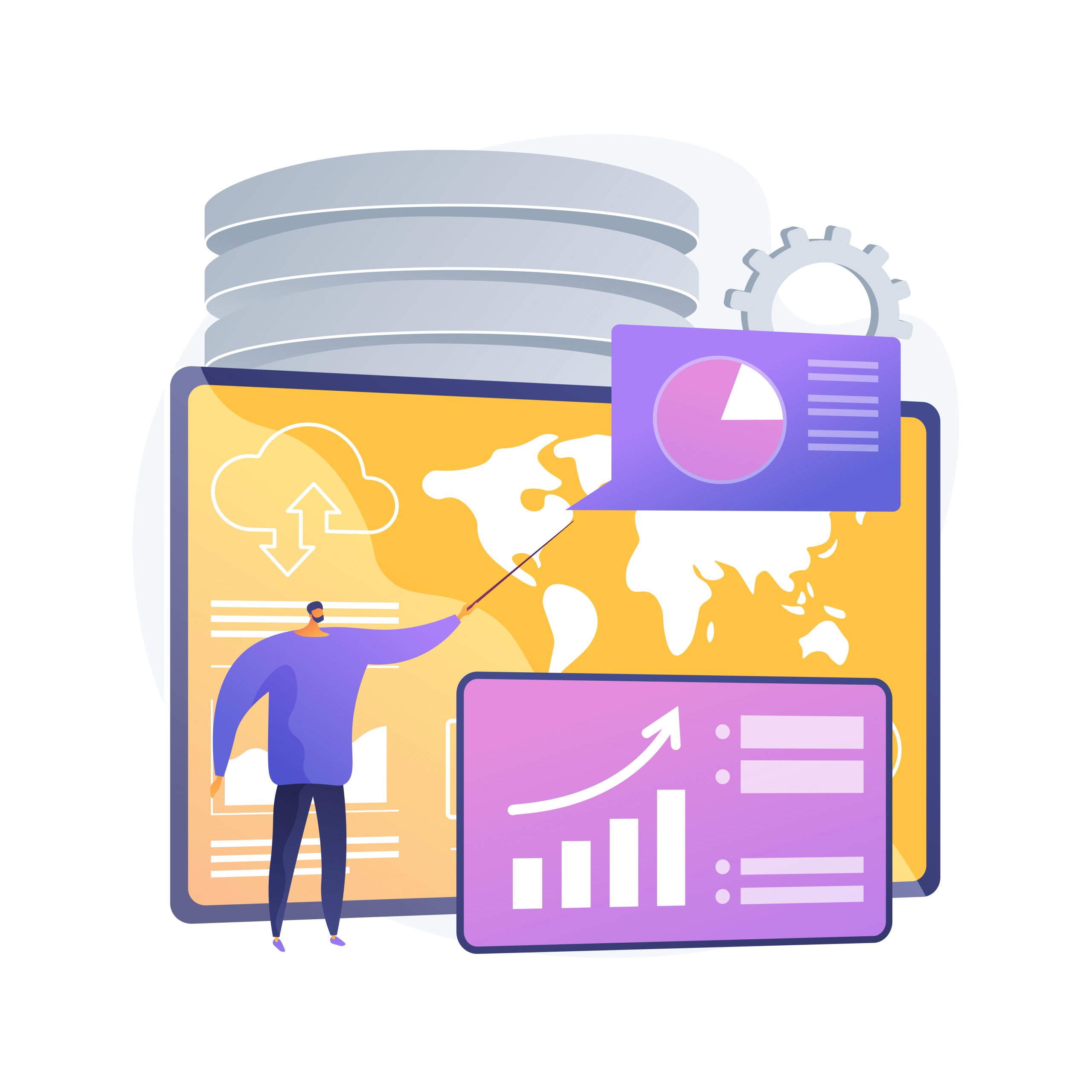In today’s digital landscape, SEO has become vital for e-commerce businesses, contributing to unprecedented growth and profitability. This article reveals the crucial role of website optimization in boosting search engine rankings and attracting organic traffic. In addition, we will look at the most essential SEO tools that enable e-commerce businesses to stay ahead of the competition and dominate their niche. As digital marketing experts, we present an expert analysis of the best software available to ensure your business thrives in the ever-evolving online marketplace.
What is E-commerce SEO?
E-commerce is the strategic optimization of online stores to improve their visibility in search engines and drive targeted organic traffic. It is pivotal in increasing online visibility, attracting potential customers, and driving sales for businesses. By implementing effective strategies for Google, companies can optimize their product listings, enhance user experience, and gain a competitive edge in the online marketplace. This results in improved search engine rankings, higher visibility, and increased conversions.
Critical Factors to Consider for Software
-
Keyword Research
Comprehensive keyword research is vital for this industry. The chosen software should provide robust keyword analysis capabilities to identify relevant, high-volume keywords with strong commercial intent. This allows businesses to optimize their product descriptions, meta tags, and content to attract qualified traffic and increase conversions.
-
Site Audits
Online store websites often have a complex structure with numerous pages. Therefore, unique software that offers site audit functionalities is crucial. These tools can identify technical issues, duplicate content, broken links, and other factors hindering search engine performance. By conducting regular site audits, businesses can ensure their website is fully optimized and search engine friendly.
-
Competitor Analysis
Analyzing competitors’ strategies is essential for e-commerce success. Software that provides competitor analysis features enables businesses to identify their competitors’ keywords, backlinks, and content strategies. This information helps companies gain insights into industry trends, refine their plan, and develop a competitive advantage.
-
Backlink Analysis
Backlinks are an essential element of e-commerce SEO. Unique tools that offer backlink analysis capabilities help businesses assess the quality and quantity of their backlinks, identify potential link-building opportunities, and monitor the effectiveness of their link-building campaigns. This allows companies to build a strong backlink profile and improve search engine rankings.
Top E-commerce SEO Tools
We’ve compiled a list of the best SEO tools to help businesses optimize their e-commerce sites and increase their online visibility. Each of them has unique features and benefits tailored to the specific aspects of the company. Let’s familiarize ourselves with these top-notch tools:
-
SEMrush
It is an all-in-one software with comprehensive keyword research, competitor analysis, and on-page optimization capabilities. It helps businesses uncover profitable keywords, track rankings, audit websites, and analyze backlinks. With its powerful features, SEMrush allows companies to improve their strategies and stay ahead of the competition.
-
Moz
It offers a range of tools, including keyword research, on-page optimization, and link-building features. Its keyword explorer helps find valuable keywords, while the site crawl feature identifies technical issues and provides actionable recommendations. Moz’s link explorer aids in analyzing backlinks and assessing domain authority.
-
Ahrefs
It is renowned for its extensive backlink analysis capabilities, enabling businesses to analyze competitors’ backlinks, identify link-building opportunities, and track the progress of their link-building efforts. It also provides keyword research, content analysis, and rank-tracking features, making it a valuable tool for this industry.
-
Screaming Frog
It is a website crawler that assists in technical analysis. It crawls through websites, identifies broken links, duplicate content, and missing meta tags, and generates comprehensive reports. This tool helps businesses ensure their websites are optimized for search engines and provide a seamless user experience.
-
Google Search Console
It is a free tool provided by Google that allows businesses to track their website’s performance in Google search results. It can give keyword rankings, crawl errors, and indexing status information. Search Console helps companies to identify and fix problems affecting their visibility in search engines.
-
Google Analytics
It provides valuable data and insights about website traffic, user behavior, and conversion rates. By utilizing its tracking features, businesses can measure their online store’s performance, identify high-converting pages, and optimize their marketing strategies accordingly.
Case Studies and Examples
To illustrate the tangible impact of utilizing the software for e-commerce businesses, let’s delve into real-life case studies of companies that achieved remarkable success by implementing this software. These examples shed light on the specific strategies and great results.
-
Case Study 1: «Company A» Boosts Sales with SEMrush
Company A, a retailer specializing in fitness equipment, aimed to increase its online visibility and drive sales. By leveraging SEMrush’s comprehensive features, they conducted extensive keyword research to identify relevant and high-converting keywords. Company A optimized its product pages, meta tags, and content based on these keywords. Additionally, they used SEMrush’s competitor analysis to gain insights into their competitors’ strategies. As a result, Company A witnessed a significant improvement in search engine rankings, experienced a surge in organic traffic, and ultimately achieved a 30% increase in online sales within six months.
-
Case Study 2: «Company B» Enhances User Experience with Moz
Company B, an apparel brand, recognized the importance of on-page optimization and providing a seamless user experience. They utilized Moz’s suite to conduct site audits and identify areas for improvement. Company B enhanced its website’s performance by rectifying technical issues, optimizing meta tags, and improving site speed. Moz’s link-building features helped them acquire high-quality backlinks, further strengthening their online presence. The result was an impressive 40% increase in organic traffic, higher conversion rates, and a substantial boost in online revenue.
-
Case Study 3: «Company C» Dominates the Market with Ahrefs
Company C, a home decor retailer, aimed to establish itself as a market leader in a highly competitive industry. By harnessing Ahrefs’ robust backlink analysis capabilities, they gained valuable insights into their competitors’ link-building strategies. With this knowledge, Company C developed a comprehensive link-building campaign, securing high-quality backlinks from authoritative websites. This catapulted their search engine rankings, increased their brand visibility, and led to significant growth in online sales, surpassing their competitors in the market.
These case studies demonstrate the power of leveraging the best software to achieve substantial results. By employing strategies tailored to their specific goals, businesses have experienced increased organic traffic, improved search engine rankings, enhanced user experience, and remarkable business growth.
Tips for Maximizing E-commerce SEO Tool Effectiveness
Following some practical tips and best practices is essential to harness the potential of software and maximize their impact on your business. You can achieve remarkable results by integrating these tools into your workflow, analyzing data insights, and staying updated with the latest trends. Here are some essential tips to consider:
-
1. Integrate tools into your workflow.
To make the most of your tools, incorporate them seamlessly into your workflow. Develop a systematic process for utilizing these tools for keyword research, on-page optimization, link building, and performance tracking tasks. Integrating them into your routine ensures consistent utilization and efficient management of your campaigns.
-
2. Leverage Data Insights
Tools provide a wealth of data and insights. Take the time to analyze this information and act upon it. Identify patterns, trends, and opportunities that emerge from the data. Use the data to refine your keyword strategies, optimize your content, and improve user experience. Regularly monitor and track the performance of your efforts using the tools’ reporting features. This data-driven approach allows you to make informed decisions and optimize your website for better results.
-
3. Stay updated with new trends
The field is ever-evolving, with new techniques, algorithm updates, and trends emerging regularly. Stay updated with the latest trends and industry best practices to stay ahead of the curve. Follow reputable blogs, attend webinars, and participate in industry forums to stay informed. Unique software often provide valuable resources, educational content, and updates related to trends. By staying informed, you can adapt your strategies, implement new tactics, and make the most of the features provided by these tools.
-
4. Seek Training and Support
While e-commerce tools are designed to be user-friendly, they often come with advanced features and functionalities. To leverage these tools effectively, consider seeking training and support. Many tool providers offer tutorials, documentation, and customer support to help you navigate the tool’s capabilities. This training can empower you to utilize the tools to their full potential, ensuring optimal results for your business.
-
5. Test and iterate.
It is an iterative process. Continuously test different strategies, experiment with new features of your tools, and measure the results. A/B testing can help identify the most effective techniques and fine-tune your efforts. Embrace a growth mindset, continually seeking ways to improve and refine your strategies based on data and insights from your tools.
By implementing these tips, you can maximize the effectiveness of your tools, drive targeted traffic to your online store, and achieve sustainable growth in the competitive e-commerce landscape.
Key points
In today’s fiercely competitive digital landscape, e-commerce businesses must consider the significance of leveraging the right software. These tools are pivotal in enhancing search rankings, driving organic traffic, and boosting online sales. As we conclude our exploration of the best software, it is crucial to emphasize the following key points:
-
Strategic Decision-Making
Choosing the right software for your business is a strategic decision. Consider your business’s specific needs and goals, and select tools that align with your requirements. Whether it’s keyword research, on-page optimization, technical SEO, link-building, or analytics, ensure that the tools you choose offer comprehensive solutions tailored to the e-commerce industry.
-
Competitive Edge
The online marketplace is saturated with competitors vying for customer attention. By utilizing the software, you gain a competitive edge. These tools empower you to identify lucrative keywords, analyze competitors’ strategies, optimize your website’s performance, and acquire high-quality backlinks. You can establish your brand as an industry leader by staying one step ahead of the competition.
-
Data-Driven Success
Unique software provides a wealth of data and insights. Make the most of this valuable information to drive your business forward. Analyze metrics, track keyword rankings, measure website performance, and monitor user behavior. Use data-driven insights to make informed decisions, optimize your strategies, and continually improve the effectiveness of your store.
-
Adaptability and Growth
The digital landscape is ever-evolving, with algorithms and trends constantly changing. Adapting and growing alongside the industry to stay relevant and drive long-term success is crucial. Keep abreast of the latest trends, algorithm updates, and industry best practices. You can maintain a solid presence and attract steady organic traffic by remaining adaptable and implementing new strategies based on emerging trends.
Remember, while this article has highlighted some of the best e-commerce software, conducting thorough research and analysis is essential to identify the most suitable software for your needs. Furthermore, consider seeking expert guidance or consulting with digital marketing professionals to ensure you’re making informed choices.
By leveraging the software for your business, you unlock the potential for improved search rankings, increased organic traffic, and enhanced online sales. Stay proactive, refine your strategies, and watch your business thrive in the ever-evolving world.






